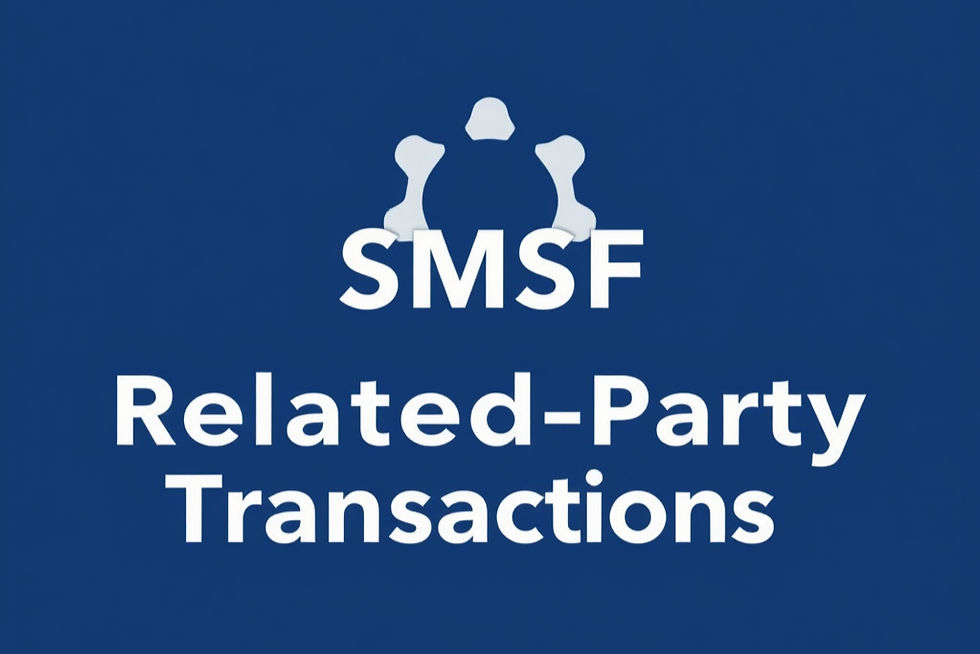10 Days Paid Family and Domestic Violence Leave: What Employers Need to Know
- pdbptax
- Oct 23
- 3 min read
Updated: Nov 6
Workplaces across Australia are moving beyond basic compliance to focus more on the wellbeing and safety of their people. One important change in this direction is the introduction of 10 days of paid Family and Domestic Violence Leave — a national entitlement designed to give employees the time and security they need to manage difficult personal situations.

Under the Fair Work Act 2009 (Cth), every employee — whether full-time, part-time, or casual — is entitled to 10 days of paid Family and Domestic Violence Leave each year. This entitlement forms part of the National Employment Standards (NES) and applies across all workplaces covered by the national system.
The full 10-day entitlement is available immediately when an employee’s 12-month period begins and resets each year; it does not accumulate or carry forward. For employers with 15 or more employees, the entitlement took effect on 1 February 2023, and for small businesses, on 1 August 2023. This measure gives employees the necessary time and security to deal with serious personal matters — such as attending court, seeking medical or legal help, or arranging safe accommodation — without the added worry of losing pay or employment stability.
This right is set out in Part 2-2, Division 7A (sections 106A to 106C) of the Fair Work Act 2009 (Cth), introduced by the Fair Work Amendment (Paid Family and Domestic Violence Leave) Act 2022.
Requesting Leave and Providing Evidence
An employee should notify their employer as soon as practicable when they need to take FDV leave. In some situations, notice may be retrospective if the event is sudden or traumatic.
Employers are entitled to request reasonable evidence confirming that the leave is being used to deal with the effects of family or domestic violence and that it could not have been managed outside normal working hours. Evidence can include police or court documents, letters from a healthcare professional or support service, or a statutory declaration.
The Fair Work Ombudsman advises that the test is one of reasonableness — the evidence must convince a reasonable person that the leave was necessary. If the employee does not provide the requested documentation, the employer may withhold payment for the leave.
Confidentiality and Care
Confidentiality is central to the FDV leave framework. Employers must take all reasonable steps to keep an employee’s personal information private. Disclosure is only allowed if required by law, agreed by the employee, or necessary to protect life, health, or safety.
Beyond legal compliance, employers should also consider their ethical duty of care. Handling such matters with empathy and discretion reinforces a culture of trust — essential in any modern workplace.
Implementing the Policy
Although the entitlement is set by law, its effectiveness depends on how well it is implemented in practice. Employers should ensure that HR and payroll systems can record Family and Domestic Violence Leave separately from other types of leave. Managers should be trained to respond appropriately to sensitive disclosures, and employees need to be clearly informed of their rights through updated handbooks, induction materials, or internal communications.
It is also good practice to establish a dedicated Family and Domestic Violence Support Policy outlining procedures for confidentiality, pay, and available support services.
Workplaces that meet their legal obligations and respond with understanding — for example, by offering flexible work options or connecting staff with professional support — contribute to a safer and more respectful environment. In the long term, this approach helps build trust, stability, and professionalism across the organisation.
A Broader Social Responsibility
This reform reflects a broader cultural shift — one that recognises the workplace as an essential part of individual wellbeing and safety. No employee should have to choose between personal security and financial stability.
Paid Family and Domestic Violence Leave gives people the space to manage difficult circumstances with dignity, while encouraging employers to play an active role in building safer, more supportive workplaces. For small and medium businesses, embracing this entitlement is not just about meeting legal obligations — it represents a commitment to integrity and responsible leadership.
Clear policies, accurate record-keeping, and informed management practices are critical to ensuring compliance and maintaining employee trust. Employers who approach this issue with empathy and professionalism are better positioned to protect both their people and their business reputation.



